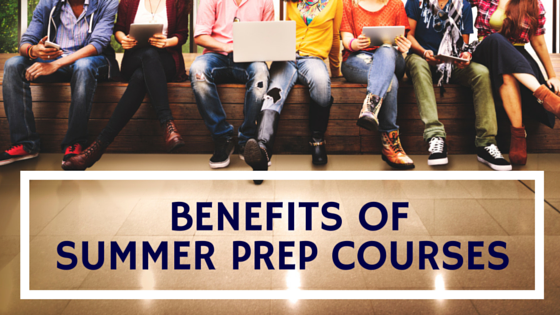by Calli Christenson
Founder and Lead Consultant
CLC College Prep Services
Calli Christenson with CLC College Prep Services offers great advice for our readers in her latest post. “Why consider test prep help for my teen over the summer?” It’s a question that many parents struggle with and Calli helps answer here. Calli and her team at CLC assist high school students across the country, and internationally, with the ever-changing college prep process… and they are based right here in Lubbock! We are excited to share helpful education and college prep tips from Calli throughout the year at LubbockForKids.com.
In the increasingly competitive higher education admissions climate, standardized test scores provide a straightforward means for schools to evaluate potential applicants. While class rank, GPA and extracurriculars are important, test scores play a significant role in the admission review process and provide an even “playing field” for colleges to evaluate applicants who come from various types of high schools with varying opportunities and grading systems.
A strong test score allows students to stand out and can significantly impact the admission review process.
Furthermore, many colleges offer merit based financial aid that can considerably subsidize the cost of tuition and fees. Standardized test scores are one of the most common metrics used to differentiate between tiers of financial aid.
A strong test score will help students to be competitive for scholarships, both from colleges and outside organizations.
Junior students who score among the top of their peers on the PSAT have a chance to be designated as National Merit Scholars, which can often result in deep financial aid awards, including full tuition scholarships at many schools.
So, the pressing question is:
How does my child achieve a great score?
Very few students walk into a PSAT, SAT or ACT and receive a top score without some preparation leading up to the exam. The level of difficulty these exams present result in even the brightest students needing to prepare. We’ve found that the keys to scoring well on standardized exams come down to Knowledge, Strategy and Practice.
Knowledge:
Your student’s hard work in school lays the foundation for success on the SAT/ACT, but even students who perform well in the classroom will benefit from subject-matter review and content remediation, if necessary. Filling in the knowledge gaps and reviewing the fundamental concepts is an integral part of maximizing one’s potential on a standardized test. Practicing the large variety of question types for each test is essential, and understanding the content that is present on each exam will give students an upper-hand.
Strategy:
Test-taking strategies help students apply their content knowledge to the unique format of the standardized exams. Timed, multiple choice tests pose challenges that students may be unfamiliar with, despite having a lot of success in their high school classes. Test-taking strategies can help students pace themselves appropriately, avoid getting trapped by distractors (wrong answer choices), and make decisions about when and how to guess or skip a question to maximize the probability of choosing a correct answer. Students must be familiar with testing strategies in order to achieve their best score.
Practice:
Sound content knowledge and a repertoire of strategies are excellent starting points, but practice is essential in order for students to become familiar with the test questions and format. Familiarity leads to confidence and a reduction in test anxiety, which ultimately leads to better testing performance. Independent practice can be beneficial, especially for highly motivated and disciplined students but, often, guided practice in which students receive review, feedback, and support from an expert tutor is the most beneficial. Practice with an expert tutor will help students overcome the unique challenges the tests pose for different learning styles.
Even with good intentions it can be hard to maintain the discipline to study consistently on your own.
There are many great resources for practice available online; however, consistent and focused practice is necessary to take full advantage of those offerings. Tutors who are personally invested in motivating and meeting the unique needs of each student will help produce strong results. A collaborative, interactive classroom is a great environment for filling in knowledge gaps, in comparison to trying to “figure it out” on your own. The summer provides a great opportunity for focused test preparation without the demands of school and homework, and gives students the opportunity to acquire the skills they need to prepare for tests in June or early fall.
Calli Christenson is an Independent Educational Consultant and founder of CLC College Prep Services. Prior to college consulting, she worked in undergraduate admissions, most recently serving as the Director of Undergraduate Admissions and Recruiting at Vanguard University of Southern California. Calli is a Professional Member of the Independent Education Consultants Association (IECA) and holds a Certificate in Independent Educational Consulting from the University of California, Irvine. She is a member of the Higher Education Consultants Association (HECA), Texas Association for College Admission Counseling (TACAC) and a 2011 graduate of the IECA Summer Training Institute at Swarthmore College.
Questions for Calli? Just comment below or she can be reached at calli@clccollegeprep.com. Follow her on Twitter @clccollegeprep and on Facebook at clccollegeprep





